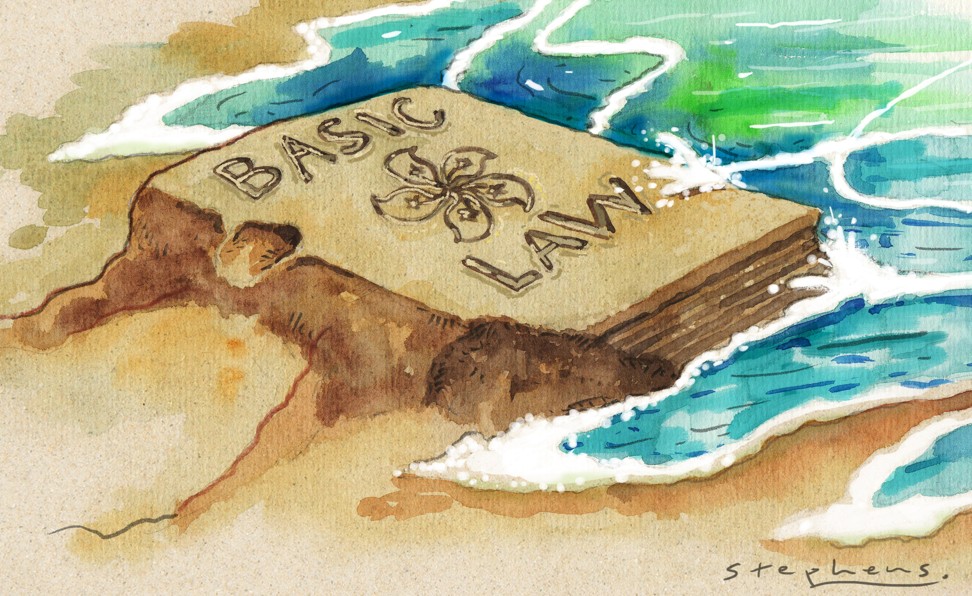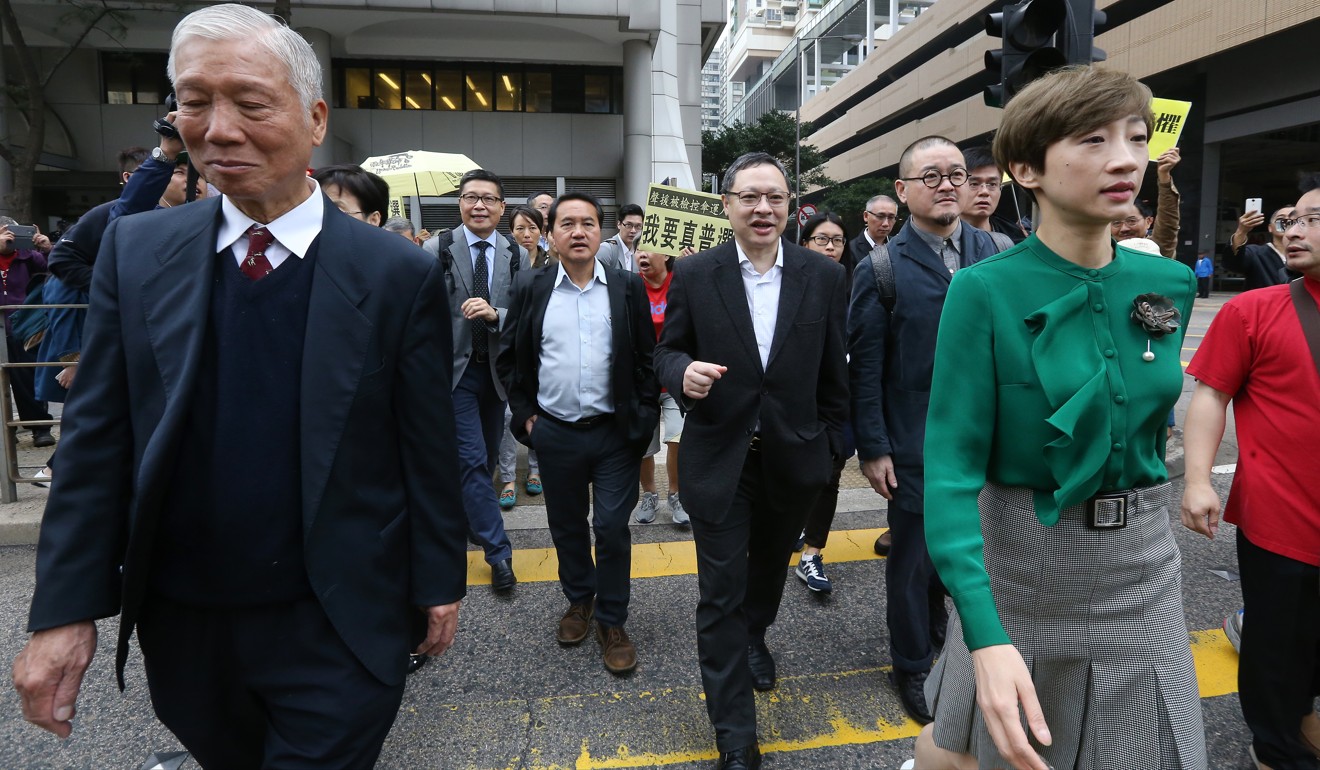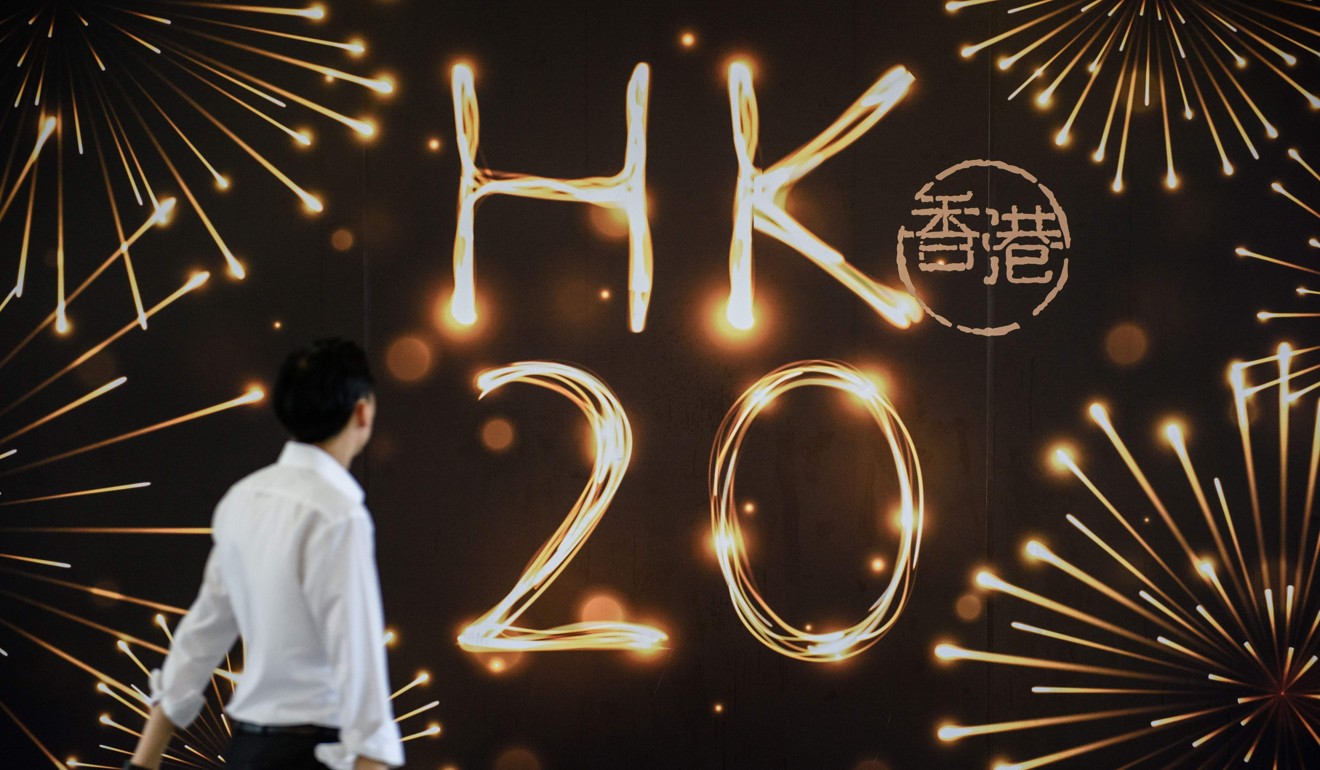
Should Hong Kong’s Basic Law be scrapped and a new constitution negotiated?
Brian Jones says freedoms are eroding in Hong Kong because the Basic Law is a failure, not for any lack of adherence


All of these events directly contradict some of the most important provisions of the Basic Law. And yet, Hong Kong citizens still cling to the text for dear life (given the circumstances, I do not blame them).
Hong Kong’s Basic Law should be amended by national legislature, former diplomat says
To avoid all doubt, I readily admit that I am a strong advocate of the autonomy provided by the Basic Law, and believe the current situation in Hong Kong is undesirable and intolerable for the Hong Kong people. I do not support Beijing’s meddling in Hong Kong affairs.
Discussion surrounding Hong Kong’s Basic Law usually focuses on the conditions in which the Basic Law operates (that is, most commentators focus on Beijing’s lacklustre appreciation for certain rights or freedoms spelt out in the document, or on Beijing’s interpretation of particular provisions), rather than on the lack of effectiveness of the document itself. There has even been widespread speculation that, in relation to Hong Kong-China relations, the governing method of “one country, two systems” has failed. This is nothing new.
However, as the Basic Law is now entering its 20th year in force, the situation in Hong Kong is more desperate than it has ever been as regards the special administrative region’s enhanced rights and freedoms. Thus, it now appears time to recognise the fact that the Basic Law – with all of its promise in 1997 – is just another failed constitution.

Jailing of Occupy police officers highlights flaws in Hong Kong’s judicial system and Basic Law
Given that many critics focus on Beijing when discussing failures of the Basic Law, little critical analysis of the constitutional text itself has developed. Although some claim that the Basic Law incorporates democracy, human rights and the rule of law, none of these terms are actually located throughout its text. The closest you can get are synonyms, or, at times, ambiguities: “universal suffrage” for democracy; “freedom of conscience” and “freedom of the person” in place of more explicit human rights (such as freedom of religion and right to life); and “protection of lawful rights” and “right to institute legal proceedings” accounting for the rule of law principles.
It may also be that the Basic Law works better in defending individual rights than in limiting interference from Beijing
The lack of explicit recognition is not necessarily fatal, however. The United States Constitution of 1789 fails to explicitly mention “democracy”, “rule of law” and “separation of powers”, three things that the US is now well known for (it also initially failed to mention “rights”, although the Bill of Rights was ratified shortly after the US Constitution was enacted).
Perhaps my treatment of the Basic Law here has been harsh. It was, after all, drafted by two jurisdictions that – at the time – did not see eye to eye on many of the topics contained in the document. It may also be that the Basic Law works better in defending individual rights in Hong Kong than in limiting interference from Beijing. Further, there is little doubt that, through the NPC Standing Committee, the Basic Law has in some sense been hijacked by Beijing. The committee has taken some of its most important bits, and dealt them an interpretive death blow (meaning they are not likely to ever be interpreted again). Nevertheless, the faults inherent in the Basic Law itself are thoroughly severe, and must be recognised.
Watch: Crowds protest against Beijing’s interpretation of the Basic Law in November 2016
Lawyers urge Beijing to listen and not rush Basic Law interpretation
But perhaps even more importantly, not only Hong Kong citizens – but all citizens – should be asking: why do we hold constitutions up on such a high pedestal? Zachary Elkins and Tom Ginsburg demonstrated in The Endurance of National Constitutions that the average length of state constitutions is merely 17 years. Even further, David Law and Mila Versteeg have empirically revealed that even given all their lustre, many constitutions and bills of rights do not in practice result in an established form of constitutionalism.
Thus, time may be up on the Hong Kong Basic Law, and the erosion of rights and freedoms is becoming more acute; perhaps it is time to renegotiate it, or scrap it altogether.
Finally, and most depressing of all, the Basic Law has a sunset (expiration) clause: 50 years (Article 5). After this, the enhanced rights and freedoms for Hong Kong residents will expire, and Hong Kong will be fully repatriated to China. This begs a further question: in the coming years, will the Basic Law not just be recognised as a failed constitution, but actually a sham constitution?
Brian Christopher Jones is a lecturer in law at Liverpool Hope University, and the editor of Law and Politics of the Taiwan Sunflower and Hong Kong Umbrella Movements
